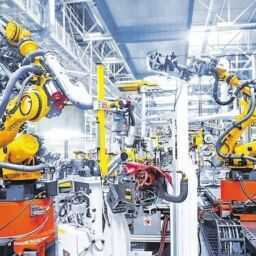
As the population increases in the urban areas of countries, these cities are facing the obstacles of directing sufficient power to cater to everyone’s needs while employing the functions of these outdated power grids. Built many decades ago, current electric grids are unpredictable in performance, expensive to operate, and unproductive. A single fallen stick from a tree can result in black outs in areas for long periods of time. Not to mention, these power grids also cause damage to the environment by increasing pollution levels.
The Internet of Things (IoT ) has the technological prowess to evolve the way we plan out cities across the world. IoT links people and governments to smart city solutions with the help of Smart Grid technology, specially curated to take the place of the older structures The benefits of exploring IoT monitoring and regulation in relation to smart grids are –
Efficient Energy Use
Smart Grid technologies will help in lowering energy consumption and expenses through usage and data maintenance. For example, intelligent lighting with the help of smart city technology will be able to regulate usage across distinct areas, swiftly adapt to external factors like rain or fog, alter output to meet the specific period of the day or particular traffic conditions, predict and address lighting outages at an instant. For consumer uses, they can regulate the temperature of their home thermostats through mobile interfaces while they are at office or on holiday.
Sustainable Energy
Smart Grid technologies are less exhaustive on batteries, are carbon efficient, and made to lower the peak load on distribution feeders. Developers can even strive to inculcate green technology into their IoT smart management for more sustainable grids. Efficient wind turbines, solar cells, microgrid technologies, and feeder automation systems have the capability to boost multiple phases of the distribution chain.
Systematic Transportation
IoT smart sensors can accumulate data on a real-time basis to transmit it to drivers and authorities. This will eventually minimize traffic congestion, offer elevated parking solutions, inform drivers of traffic incidents and structural damage to city landscapes, and enable automated payments at road tolls and parking gates. In the future, IoT technology will probably even be able to wirelessly charge electric vehicles.
Waste & Water Management
Smart cities elevate productivity and lower expenses in their waste and water management applications. IoT applications offer real-time data to trace inventory and mitigate theft/loss. Similarly, cloud-based technologies and traffic control can ensure better scheduling and time spent on certain routes. Smart energy analytics can collate information on water flow, pressure, temperature, amongst others to aid consumers in keeping track of their usage habits.
AUTOPOST by BEDEWY VISIT GAHZLY



